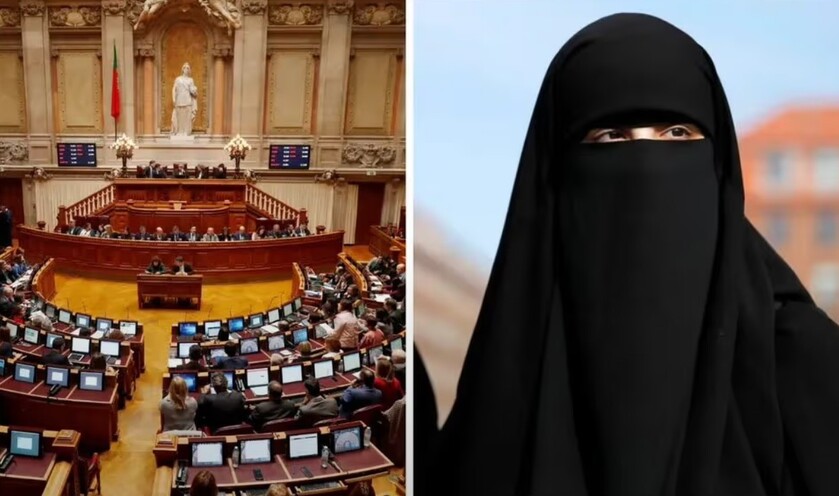Portugal’s parliament has approved a bill, banning face veils like burqas and niqabs in most public spaces, a move spearheaded by the right-leaning Chega party and supported by center-right coalition parties.
The legislation targets garments worn for "gender or religious motives," imposing fines of €200 to €4,000 ($234 to $4,671) for violations and prison sentences of up to three years for forcing someone to wear such veils. The bill now awaits presidential assent from Marcelo Rebelo de Sousa, who may veto it or refer it to the Constitutional Court for review.
The bill specifically targets burqas and niqabs worn by Muslim women, though it exempts places like airplanes, diplomatic premises, and places of worship.
Proponents, including Chega leader Andre Ventura and Social Democratic Party lawmaker Andreia Neto, argue the ban protects women’s autonomy and promotes gender equality, stating it prevents women from being forced to veil and safeguards national identity.
Critics, including left-wing parties like the Socialist Party and human rights advocates, argue the law unfairly targets Muslim minorities, risks stigmatizing religious expression, and may deepen societal divisions despite the small number of women in Portugal who wear such veils.
The Muslim population in Portugal is small, estimated at around 0.4% of the total population according to the 2021 census, meaning the practical impact of the ban may be limited but its symbolic significance is high.
If enacted, Portugal would join other European nations such as France, Austria, Belgium, and the Netherlands in having full or partial bans on face coverings, a trend that has sparked international debate over religious freedom versus security and gender equality.















